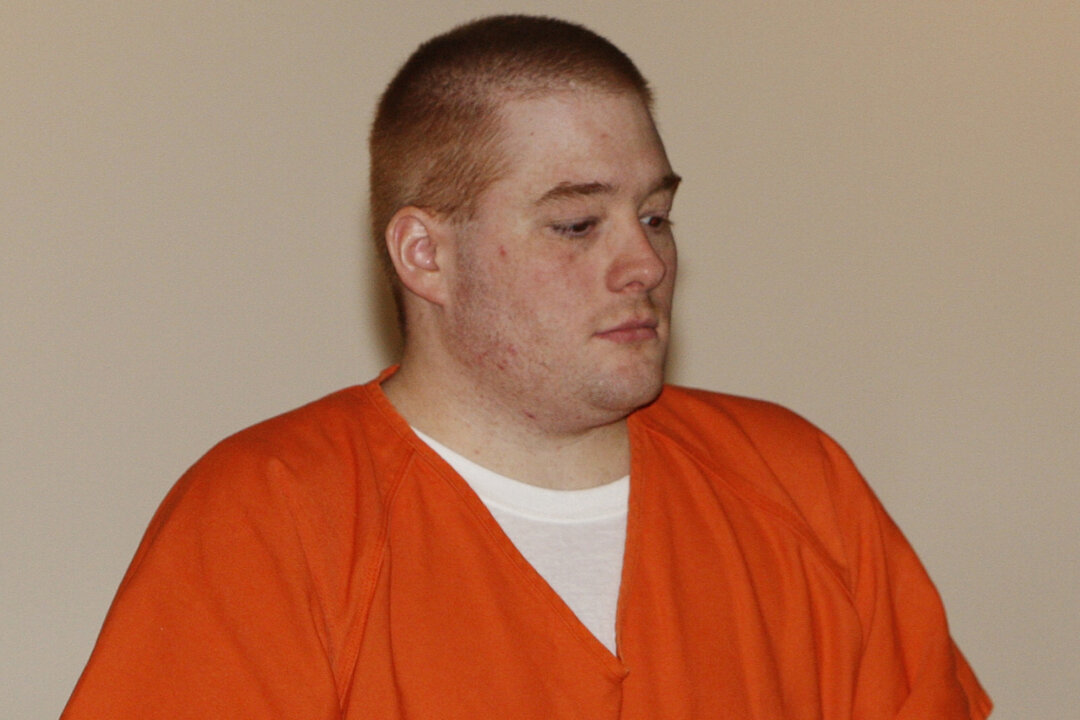OKLAHOMA CITY—An Oklahoma man who killed a 10-year-old girl in a cannibalistic fantasy died by lethal injection Thursday in the nation’s 25th and final execution of the year.
Kevin Ray Underwood was pronounced dead at 10:14 a.m. at the Oklahoma State Penitentiary in McAlester. It was Oklahoma’s fourth execution of the year, and it took place on Underwood’s 45th birthday.
Oklahoma uses a three-drug lethal injection process that begins with the sedative midazolam followed by a second drug that paralyzes the inmate and a third that stops their heart.
Strapped to a gurney inside the death chamber, Underwood apologized to Jamie’s family and to his own family “for all the terrible things I did.”
“The decision to execute me on my birthday and six days before Christmas was a needlessly cruel thing to do to my family,” Underwood said, “but I’m very sorry for what I did and I wish I could take it back.”
Underwood looked over to members of his legal team and his family, including his mother, as the execution began at 10:04 a.m.. His breathing hitched slightly and his eyes closed a few minutes later. A doctor entered the execution chamber at 10:09 a.m., shook him a few times and declared him unconscious. He was pronounced dead five minutes later.
Underwood, a former grocery store worker, was sentenced to die for killing Jamie Rose Bolin in 2006. Underwood admitted to luring Jamie into his apartment and beating her over the head with a cutting board before suffocating and sexually assaulting her. He told investigators that he nearly beheaded Jamie in his bathtub before abandoning his plans to eat her.
Jamie’s sister, Lori Pate, who was among several relatives who witnessed the execution, thanked prosecutors for helping guide her family through the nearly 18-year process from Jamie’s death to Underwood’s execution.
“This doesn’t bring our Jamie back but it does allow the space in our hearts to focus on her and allow the healing process to begin,” Pate said.
During a hearing last week, three members of the state’s Pardon and Parole Board unanimously voted against recommending clemency.
Underwood’s attorneys had argued that he deserved to be spared the death penalty because of his long history of abuse and serious mental health issues that included autism, obsessive-compulsive disorder, bipolar and panic disorders, post-traumatic stress disorder, schizotypal personality disorder, and various deviant sexual paraphilias.
Prosecutors argued that many people suffer from mental illness, but that doesn’t justify harming children.
In a last-minute request seeking a stay of execution from the U.S. Supreme Court, Underwood’s attorneys argued that he deserved a hearing before all five members of the board and that the panel violated state law and Underwood’s rights by rescheduling the hearing at the last minute after two members of the board resigned. The court rejected that bid earlier Thursday morning.
By Sean Murphy










































